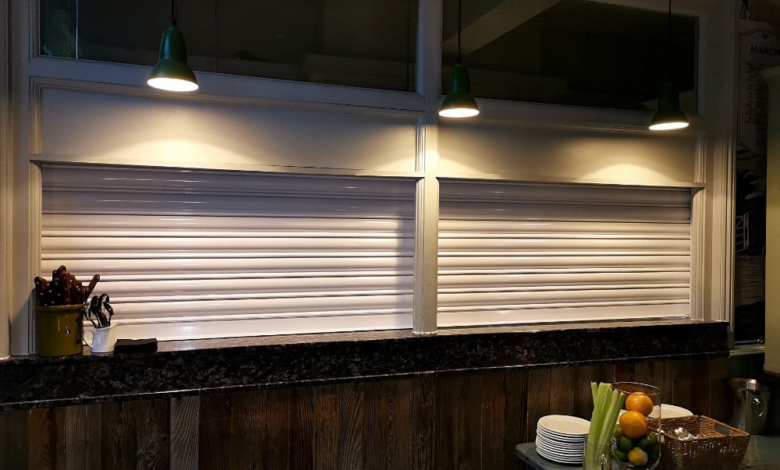Understanding Fire Shutters: Enhancing Safety and Security

Fire shutters are crucial components of building safety systems, designed to compartmentalize fire hazards and enhance overall safety. These specialized shutters are integral in various settings, including commercial, industrial, and residential buildings. Where they serve to prevent the spread of fire and smoke.
What Are Fire Shutters?
Fire shutters are typically made from fire-resistant materials such as steel or other non-combustible materials. They are installed in buildings to create fire-resistant barriers that can be deployed either manually or automatically in case of a fire emergency. These shutters are strategically placed to seal off openings such as windows, doors. Other large openings that could otherwise allow fire and smoke to spread quickly through a building.
Functionality and Purpose
- Containment of Fire and Smoke: The primary function of fire shutters is to contain fire and smoke within a specific area of a building. By blocking off openings, they limit the movement of flames and hot gases. Which helps to minimize property damage and increases the chances of safe evacuation.
- Protection of Escape Routes: Fire shutters are often installed in areas critical to escape routes, such as stairwells and corridors. By maintaining these routes clear of smoke and fire, shutters provide safer paths for occupants to exit the building during an emergency.
- Enhanced Building Safety: Beyond containing fire, fire shutters contribute to overall building safety. By meeting regulatory standards and ensuring that fire safety systems are compliant with local building codes and fire safety regulations.
Types of Fire Shutters
Fire shutters come in various types to suit different building requirements and configurations:
- Rolling Fire Shutters: These shutters are mounted above openings and roll down vertically when activated. They are commonly used in areas such as shopping malls, warehouses, and industrial facilities.
- Horizontal Sliding Fire Shutters: Installed to slide horizontally across openings. These shutters are ideal for wider spaces where vertical rolling shutters may not be feasible.
- Fire-Rated Doors: While not strictly shutters, fire-rated doors serve a similar purpose by providing fire resistance and are often used in conjunction with fire shutters to create comprehensive fire protection systems.
Design and Installation Considerations
- Material Selection: Fire shutters are typically made from steel, which offers excellent fire resistance. Some shutters may also include additional insulation to prevent heat transfer and maintain the integrity of the barrier.
- Integration with Fire Alarm Systems: Many fire shutters are equipped to automatically deploy upon detection of smoke or fire. Integrating seamlessly with building fire alarm systems and enhancing response times during emergencies.
- Maintenance and Testing: Regular maintenance and testing of fire shutters are essential to ensure their reliability. This includes periodic inspection to verify proper operation and integrity of fire resistance ratings.
Compliance and Regulations
Fire shutters must meet stringent regulatory standards to ensure their effectiveness in fire containment. Regulations vary by jurisdiction but typically include requirements for fire resistance ratings, deployment mechanisms, and regular maintenance schedules.Read…More:aoomaal.co.uk
Conclusion
Fire shutters play a vital role in modern building safety, offering a proactive approach to fire protection. By containing fire and smoke within designated areas. By investing in high-quality fire shutters and ensuring compliance with local regulations, building owners and managers can significantly enhance the safety and security of their premises. As technology advances, fire shutters continue to evolve, providing more efficient and effective solutions to mitigate the impact of fire emergencies on both property and human life.
In conclusion, understanding the importance of fire shutters and their role in building safety underscores. Their significance as essential components of comprehensive fire protection strategies.



